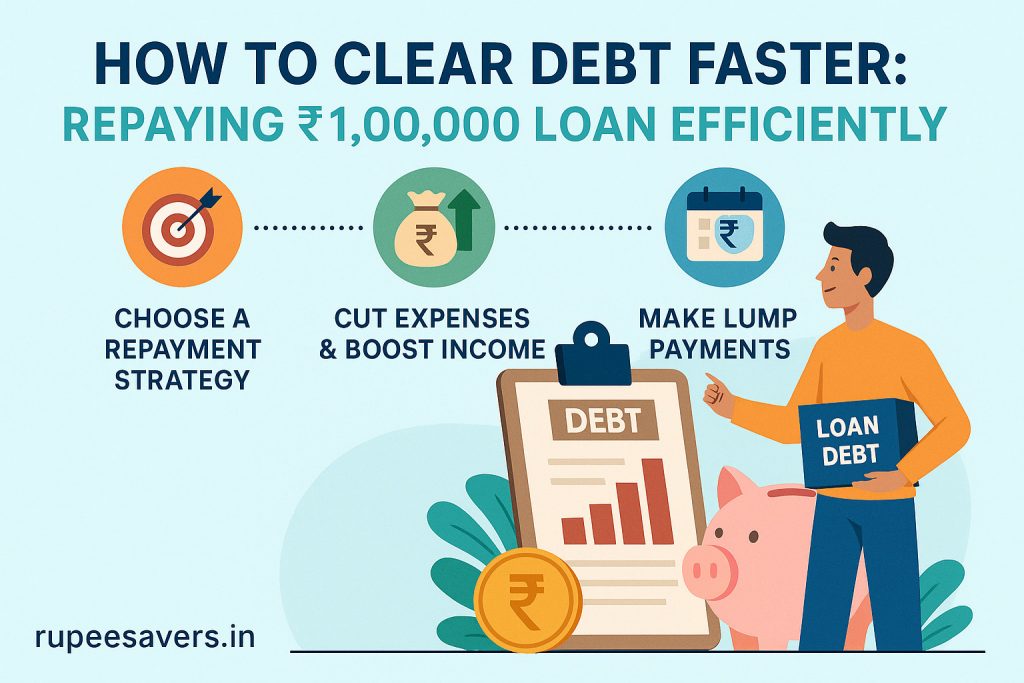Managing your money isn’t just about saving and investing. It also involves handling your bank accounts and credit responsibly. Here are nine banking and credit habits that can help you secure your financial future in India.
💳 1. Maintain a Healthy Credit Score
A good credit score (750+) can unlock better loan rates, faster approvals, and higher credit limits.
Tip: Pay your credit card bills in full before the due date, avoid taking unnecessary loans, and keep your credit utilization below 30%.
Quick Win: Check your free credit report once a year from CIBIL, Experian, or CRIF.
Why it matters: A strong credit score can help you get better terms on home loans, car loans, and even personal loans, saving you lakhs over a lifetime. It also enhances your chances of getting a pre-approved loan offer and special credit card upgrades.
💶 2. Use Credit Cards Smartly
Credit cards offer benefits but can become debt traps if misused.
- Always pay the total outstanding, not just the minimum due.
- Maximize reward points by using cards for essential purchases.
- Avoid impulsive spending because of reward programs.
Bonus Tip: Choose a card that matches your lifestyle—travel, dining, fuel, or shopping.
Example: If you travel often, using an airline co-branded credit card can earn you free flights and lounge access, adding real value to your expenses.
Extra Tip: Set SMS alerts for every credit card transaction to monitor unauthorized usage instantly.
🏦 3. Diversify Your Bank Accounts
Never park all your money in one savings account.
- Have a primary account for salary and bills.
- Maintain a secondary account for savings goals.
- Use a different bank for high-interest savings if needed.
Pro Tip: Digital-only banks and smaller private banks sometimes offer higher interest rates—but always check for safety.
Additional Tip: Keep one emergency account separate with a debit card you don’t use daily. This ensures your emergency fund remains untouched.
Insight: Having multiple bank accounts also helps you organize finances better—one account solely for investments, one for daily use, and one for future goals.
📅 4. Set Up Automatic Payments
Automate your:
- Loan EMIs
- Credit card bills
- SIPs
- Utility bills
Why it matters: Avoid late payment charges, maintain a strong credit history, and save mental energy.
Safety Tip: Always maintain sufficient balance to avoid auto-debit failures, which can impact your credit report negatively.
Additional Tip: Keep an eye on due dates by setting mobile reminders, even for automated transactions, to ensure no surprises.
💵 5. Watch Out for Hidden Fees
Many banks charge maintenance fees, ATM withdrawal fees, and SMS charges without clearly informing.
Solution:
- Review your monthly statements.
- Ask your bank about zero-balance or low-fee account options.
- Be aware of free transaction limits at ATMs.
Example: Some banks allow only 5 free ATM transactions per month; exceeding this can cost ₹20-25 per transaction. Knowing such details saves you unnecessary charges.
Extra Tip: Negotiate with your bank for a fee waiver, especially if you maintain a healthy average balance.
📈 6. Optimize Savings with Linked Accounts
Use smart products like:
- Sweep-in Fixed Deposits: Earn FD rates while maintaining liquidity.
- Flexi-deposit accounts: Automatically move excess balance into higher-interest FDs.
Advantage: You earn better returns without losing access to your money.
Pro Tip: Compare interest rates between banks before setting up such facilities. Even a 1% difference can add up over years.
Insight: Many banks allow auto-renewal for these FDs, ensuring your money keeps working without manual intervention.
💰 7. Regularly Update Bank Details
Keep your mobile number, email ID, and KYC documents updated with your bank.
Reason:
- Ensures transaction alerts are received timely.
- Avoids disruptions in net banking, UPI, and card services.
- Mandatory for account continuity (especially after RBI KYC updates).
Security Tip: Use different strong passwords for your bank logins and change them periodically.
Bonus Tip: Enable two-factor authentication (2FA) on banking apps to add an extra layer of security against online fraud.
💸 8. Use UPI Safely and Smartly
UPI is convenient but must be used cautiously to prevent fraud.
Tips for UPI Safety:
- Never share your UPI PIN.
- Always verify the receiver’s name before sending money.
- Prefer using trusted apps like BHIM, PhonePe, or Google Pay.
Pro Tip: Set lower transaction limits in your UPI app settings for additional safety.
💷 9. Stay Updated on Banking Policies
The RBI and banks regularly update rules regarding interest rates, service charges, UPI limits, and credit card terms.
How to Stay Updated:
- Subscribe to your bank’s newsletters.
- Follow RBI updates.
- Check the ‘terms and conditions’ emails sent by your bank.
Being aware of policy changes helps you adapt quickly and avoid unnecessary charges or missed opportunities.
📄 Frequently Asked Questions (FAQs)
Q1: How often should I check my bank account for hidden fees?
It’s a good practice to review your bank statement at least once a month to catch any hidden charges or unusual transactions early.
Q2: Is it safe to use credit cards for daily expenses?
Yes, it is safe if you use your credit card responsibly, pay the full outstanding balance every month, and monitor your transactions regularly.
Q3: What should I do if I detect a fraudulent UPI transaction?
Immediately report the transaction to your bank or UPI app’s customer support. Also, raise a complaint through the NPCI portal if needed.
Q4: How many savings accounts is too many?
Ideally, 2 to 3 accounts should be enough—one for salary, one for expenses, and one for savings/investments. More accounts can make tracking and management difficult.
Q5: What documents are required for KYC updates in India?
Common KYC documents include Aadhaar Card, PAN Card, Voter ID, Passport, and Driving License. Check with your bank for specific requirements.
💼 Final Word
Mastering your banking and credit habits early saves you money, improves your creditworthiness, and strengthens your financial foundation.
Small improvements today can lead to huge financial advantages tomorrow. Stay disciplined, stay informed, and keep growing financially strong.
Regular banking check-ups are as important as health check-ups—don’t ignore them!
Coming Soon: Download our Free Banking Checklist for Beginners on RupeeSavers.in!



